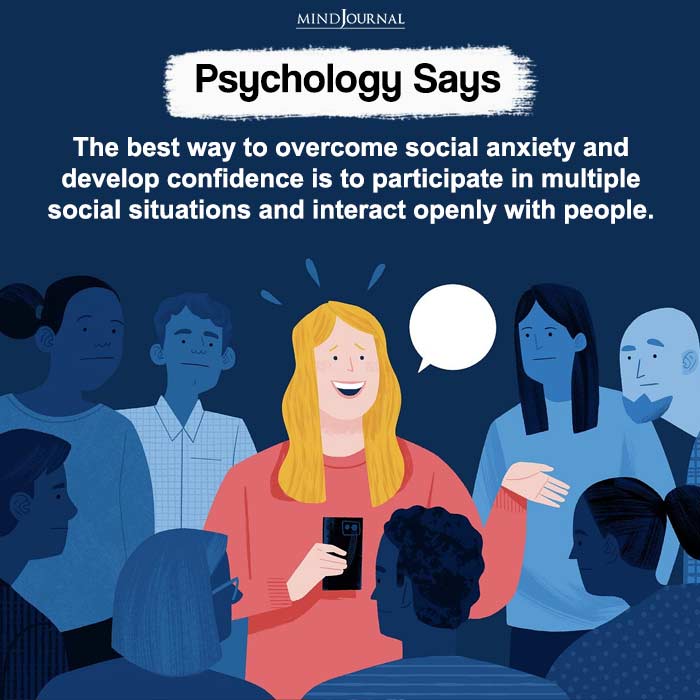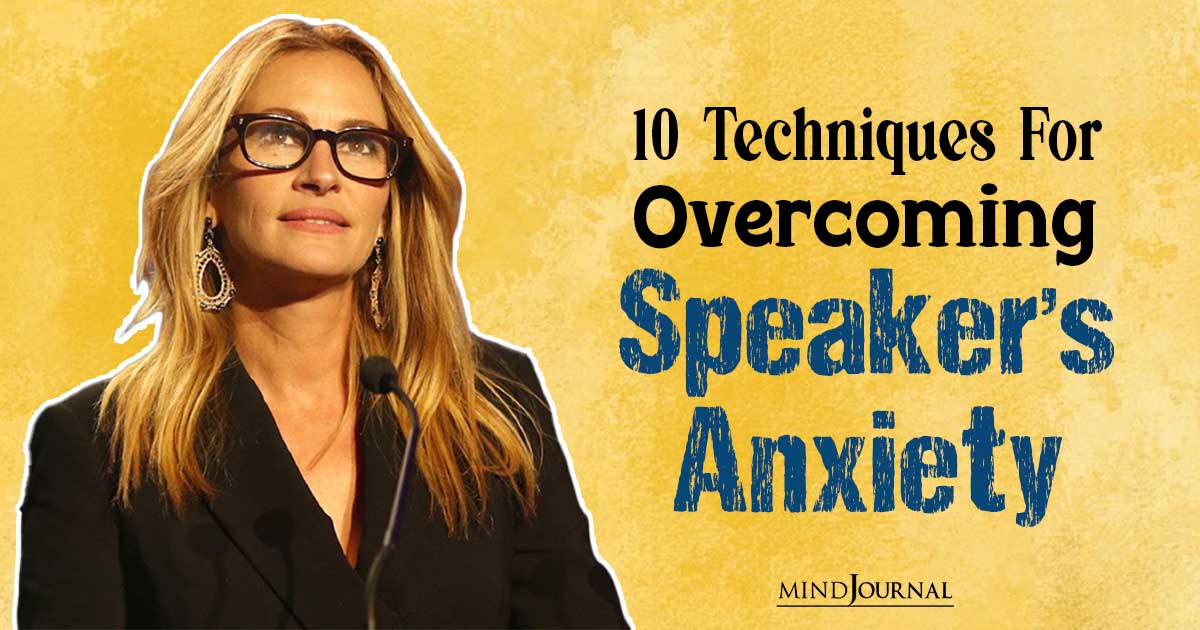If you are someone who has a fear of public speaking or you feel petrified of speaking on stage, then you’ve come to the right place. This article is going to explore some of the best techniques for overcoming speakers anxiety and the fear of public speaking.
In the last 15 years I have done over 600 presentations. Along the way I have learned a few techniques to deal with the social anxiety and stress associated with public speaking.
If you find it difficult to talk in front of an audience, you may find these tactics useful as I and others have.
10 Techniques For Overcoming Speakers Anxiety
1. Recognize that stress or social anxiety is a natural reaction.
Tell yourself this is to be expected and many presenters, even after years of presenting, still get the jitters. It’s OK.
Related: What Is Performance Anxiety? 10 Ways To Overcome Your Fear Of Being Judged
2. Front it.
If you are nervous sometimes it is best to tell your audience, “I am really nervous;” I have personally done it and many well-known performers, for example, have done the same when receiving an award because they were nervous.
It’s OK. Remember, your audience wants you to succeed and they will understand. So let them know; they will smile back to make you comfortable and that alone often helps.
3. Prior to going on stage drink water.
Anxiety causes our mouths to dry so you want to be hydrated and have water available on stage—just in case.

4. Stretch before going on stage.
I often see professional speakers stretch their neck forward and back as well as side-to-side and this helps them to deal with their anxieties. Others will open their mouth really wide several times—they tell me that helps.
Others move their shoulders up, hold, then lower them slowly. Each person has his or her own go-to favorites—see what works best for you.
5. Try the push away—it is easy to do and one of my favorites.
Stand about two feet away from a wall and do push-aways much as you would do a push-up. Five quick push-aways is often just enough to lessen anxiety.
6. Our subconscious deals with threats or potential issues so often..
we tend to focus on those in the audience that seem unhappy, displeased, or disinterested with our presentation.
Override this survival instinct by forcing yourself to focus only on friendly faces—even if there is just one in the room—that will go a long way to help you relax. Once you find one then look for another and skip the unhappy or those that are disinterested—they are needless distractions.
Related: How To Speak So That People Want to Listen: 8 Powerful Strategies
7. We spend all day pacifying ourselves by engaging in hand to body touching (rubbing our nose, touching our faces, rubbing our hands together, biting our lips, etc.).
When we are stressed we do more of these things (blink rate also goes up, hand-wringing, hand massaging, playing with wedding bands, etc.) and on stage these can be very distracting.
Tell yourself “I know I am going to do these things—this is natural.” Acknowledge to yourself that you do these things and that it is normal. On stage repeat to yourself, “I will still do these things, only this time I will do them more slowly and gently.”
You still get to have your favorite security blanket/pacifying behavior—it just won’t be as distracting.
8. Learn to accept that the stage is your friend.
It is there for your benefit: to focus attention, to reach a broader audience, or to enhance your presentation—it is not your enemy. Reframe your thinking—it will reduce your anticipatory stress level.

9. If you still find yourself struggling on stage, take a deep breath…
and exhale really slowly, longer than you would normally exhale—repeat if needed. Don’t hesitate to let the audience know this is hard for you—they understand and will admire you for trying.
Related: How To Overcome Social Anxiety: 10 Steps To Beat It For Good
10. Rehearse, rehearse, rehearse.
I often find great speakers in the green room quietly rehearsing out loud the same lines they have delivered many times. Why? Because it helps them to relieve stress and they can hear that all familiar voice; their own voice, and that alone helps them to calm down.
Check out Joe Navarro’s website for more such informative and interesting articles. His books are available to purchase here.
Written By Joe Navarro M.A.
Originally Appeared On Psychology Today










Leave a Reply